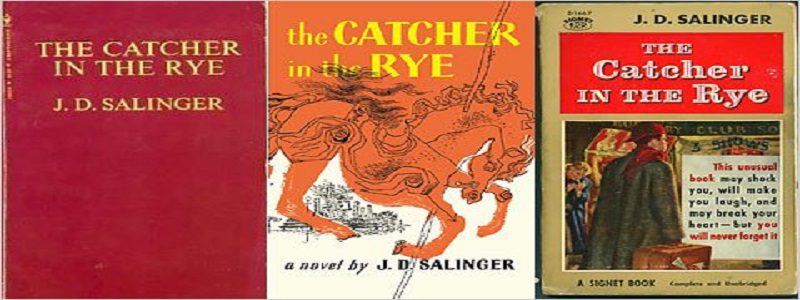Voice, Language, and Characterization: ‘The Catcher in the Rye’ and Argument Stations
Overview
Holden Caulfield still has one of the most distinctive, recognizable, and influential voices in all of American literature, more than 65 years after reclusive writer J.D. Salinger brought him into existence. He certainly has one of the most widely heard voices, with The Catcher in the Rye having sold more than 65 million copies since its publication in 1951, and still selling more than 1 million copies a year, a significant portion of those being swooped up by high school and college students.
J.D. Salinger’s original, influential The Catcher in the Rye — still one of the most widely read and highly praised and awarded novels common to high school English reading lists, 65 years after its publication, and despite enormous transformations in adolescent life in this country — offers an opportunity to place under the literary microscope diction, tone, slang, repetition, dialogue, the attentive gaze, choices of metaphor. By studying Catcher, students learn how all of these techniques and more are accessed by writers to produce a distinctive, identifiable voice, one that builds out into rich and meaningful characterization.
‘The Witches’ and Argument-Based Discussions Linked to Key Passages
Argument-Centered Education has designed a new method of organizing teaching and learning around academic argumentation in ELA literature units. The strategy is one we call Argument-Based Discussions Linked to Key Passages. We recently collaborated with ELA teachers with one of our middle school partners to adapt this instructional format to a unit on Roald Dahl’s 1983 young adult novel, The Witches.
Working on Writing Mechanics: A Whole-Class Strategy
Several of our partner schools’ literacy teachers have coalesced around a concern for the level of command and control over mechanics and grammar that their students demonstrate in the academic writing. They are increasingly aware of the way that their students’ college readiness is being evaluated on the basis of their use of standard, grammatical written English. These schools have been assigning exercises on the fundamentals of mechanics, but these activities are abstracted from the mental maps and actual ways of using grammar embodied by their students’ written work. This activity addresses students own individualized mechanics misunderstandings.
Arguing about Ancient Chinese Philosophy — the Confucianism vs. Daoism Project
We worked recently with a partner school’s Global Studies course and their Ancient China unit. The outcome: an argument-based small group discussion project on Confucianism and Daoism.
The post below includes resources which focus on the way that arguments can be made about the desirability of certain systems of thought and the values they inscript. The project also uses a format of discussion that is looser and less rules-based than a debate (though, of course, rules have their utility and place, when striving to reach certain levels of rigor in a scaffolded academic setting). Finally, this project is an example of the way that an argument-centered approach has the agility to incorporate varied curricular resources — in this instance, some SHEG (Stanford History Education Group) document excerpts and background information.
Tracking an Argument: Flowing RFK’s Speech on Our Use of the Gross Domestic Product
I recently collaborated with Jones College Prep AP Macroeconomics teacher Mike Borge on a short project he developed around the use of the gross domestic (or national) product as a key measurement of national strength. The component that we helped build out is the argument tracking function. Through this project, students learn how to convert straight-forward annotation into listening for and “flowing” argument.
The debatable issue for the project is:
Should the gross domestic product (GDP) be used as a key metric of American strength.






